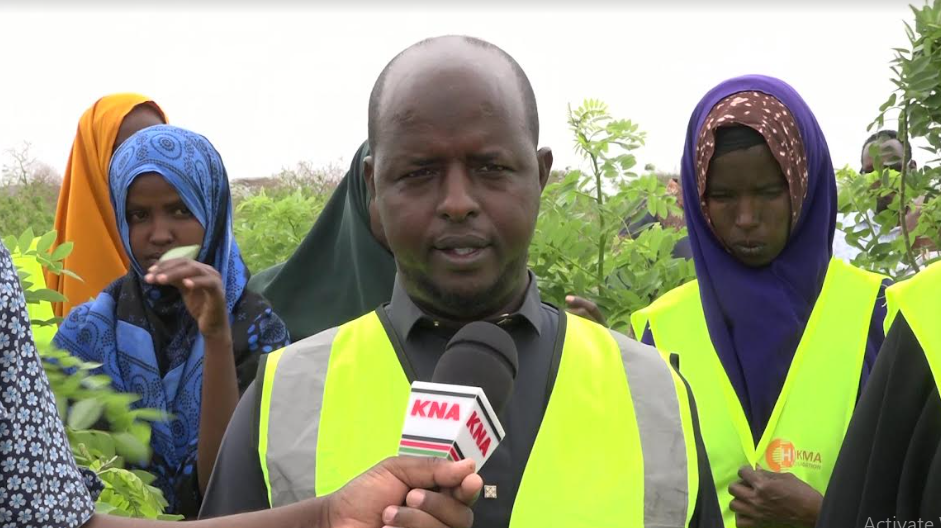As most parts of the country continue to grapple with the harsh effects of climate change, such as prolonged droughts, low or no rainfall, high temperatures, and food insecurity, among others, a section of Garissa County, which has been one of the most affected counties, are now turning to irrigation farming to sustain their livelihood.
Today, Garissa County has hundreds of farms, fetching tonnes of foodstuffs ranging from mangoes, rice, bananas, and oranges to animal fodder and lifting the lifestyle of the farmers. With proper support such as marketing, training on technology, and value addition, Garissa can be the next food basket in the country.
Unlike most schools in the county, which rely on donors, well-wishers, and the government for support, Kunow Primary School in Balambala Sub County has taken the initiative, by example, to plant their own food and trees for their firewood, as well as share with the neighbouring communities.
We visited the school over the weekend to have a look at what the school has done and to share their story of resilience and the impact on the surrounding communities amid calls from the national and county governments and international bodies to come up with innovative ways to tackle climate change.
The school’s head teacher, Mohamed Ali, took us through the farms, which they have divided into two: one for food crops and the other for trees, where they have planted around 250,000 Gliricidia plants.
Ali said the school hopes to increase the number of trees to one million in the coming years, in line with the government’s initiative to boost tree cover in the country by 2030.
They use the trees for their firewood, where they are cut into small pieces, mixed with other materials such as sawdust, and then put in a compression machine to make firewood.
“On the other farm, we normally grow food crops to sustain the learners we have here. This project was implemented by the National Council for Nomadic Education in Kenya (NACONEK), which has assisted us and engaged with the parents,” Ali said.
“For the parents to get incentives from this project, they have to bring their children to school. Due to this and the engagement we have had with the parents, the population of this area has increased because a lot of people are coming to settle here,” he added.
The head teacher said that the people in the surrounding communities will enjoy the fruits of the farms, which include firewood and pasture for their livestock from the leaves of the Gliricidia plants.
The school is also giving out 100 grammes of seeds from the gliricidia plants to all the parents so that they can continue planting trees in their homes. Parents are also getting 250 jikos and a sufuria from the school to encourage them.
The school has installed a solar-powered water pump to pump water from the River Tana, which is 6 kilometres away, into their farms, and that way they have been able to sustain the crops and trees to maturity.
National Disaster Management Authority (NDMA) CEO Col (rtd) Hared Adan, who also toured the institution, applauded the school for its life-changing programme in the middle of recurring droughts in the county.
“What we are witnessing today is evidence that with water, anything is possible. We are covering a 75-acre farm with both trees and food crops. The food crops go towards promoting food security within this area,” Adan said.
“We want to encourage the locals to plant trees on their homesteads. As NDMA, we will try to support the community by giving them the seedlings so that each homestead can plant at least five trees,” he added.
By Erick Kyalo





